
Cape Town: The Jewel of South Africa
Cape Town, a vibrant city nestled between the iconic Table Mountain and the deep blue waters of the Atlantic Ocean, offers a unique blend of natural beauty and rich cultural heritage. Known as the 'Mother City,' Cape Town is the oldest city in South Africa and boasts a fascinating history that dates back to the arrival of the Dutch settlers in the 17th century. Visitors can explore the bustling V&A Waterfront, a hub of shopping, dining, and entertainment, or take a cable car ride to the top of Table Mountain for breathtaking panoramic views. The city's diverse neighborhoods, from the colorful Bo-Kaap to the trendy streets of Woodstock, offer a taste of Cape Town's multicultural fabric. Nature enthusiasts will be enchanted by Cape Town's stunning landscapes, including the famous Cape Point, where the Indian and Atlantic Oceans meet, and the picturesque Kirstenbosch Botanical Gardens. For those seeking adventure, the nearby Winelands provide world-class wine tasting experiences, while the beaches of Clifton and Camps Bay offer a perfect spot to unwind and soak up the sun.
Local tips in Cape Town
- Visit Table Mountain early in the morning to avoid long queues and enjoy clear views.
- Use the MyCiTi bus service for convenient and affordable transport around the city.
- Explore the V&A Waterfront on foot to fully experience its lively atmosphere.
- Book wine tasting tours in advance to secure a spot at popular vineyards.
- Wear comfortable shoes when exploring the city’s many hiking trails.
- Check the local weather forecast as Cape Town’s weather can be unpredictable.
- Visit the Bo-Kaap Museum to learn about the history of the Cape Malay community.
Neighbourhoods in Cape Town
Cape Town: The Jewel of South Africa
Cape Town, a vibrant city nestled between the iconic Table Mountain and the deep blue waters of the Atlantic Ocean, offers a unique blend of natural beauty and rich cultural heritage. Known as the 'Mother City,' Cape Town is the oldest city in South Africa and boasts a fascinating history that dates back to the arrival of the Dutch settlers in the 17th century. Visitors can explore the bustling V&A Waterfront, a hub of shopping, dining, and entertainment, or take a cable car ride to the top of Table Mountain for breathtaking panoramic views. The city's diverse neighborhoods, from the colorful Bo-Kaap to the trendy streets of Woodstock, offer a taste of Cape Town's multicultural fabric. Nature enthusiasts will be enchanted by Cape Town's stunning landscapes, including the famous Cape Point, where the Indian and Atlantic Oceans meet, and the picturesque Kirstenbosch Botanical Gardens. For those seeking adventure, the nearby Winelands provide world-class wine tasting experiences, while the beaches of Clifton and Camps Bay offer a perfect spot to unwind and soak up the sun.
When is the best time to go to Cape Town?
Iconic landmarks you can’t miss
V&A Waterfront
Experience the vibrant culture, shopping, and breathtaking views at the V&A Waterfront, Cape Town's premier destination for tourists.
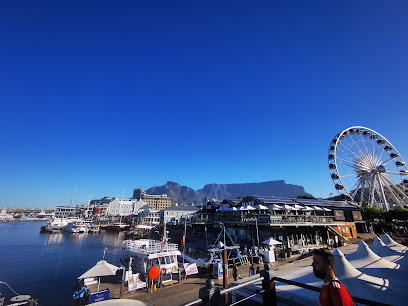
Kirstenbosch National Botanical Garden
Explore the stunning Kirstenbosch National Botanical Garden, a UNESCO World Heritage Site, showcasing South Africa's unique flora against Table Mountain's backdrop.
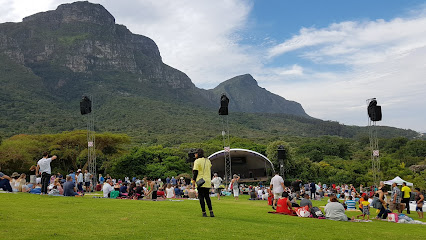
Table Mountain National Park
Discover the breathtaking beauty and diverse ecosystems of Table Mountain National Park in Cape Town, South Africa – a paradise for nature lovers and adventure seekers alike.
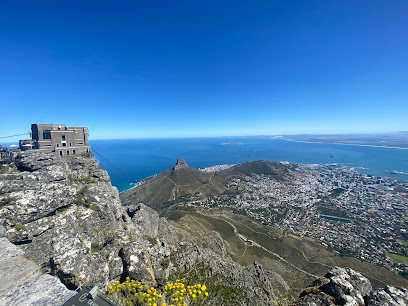
Two Oceans Aquarium
Discover the breathtaking beauty of marine life at the Two Oceans Aquarium in Cape Town, where the Atlantic and Indian Oceans converge in a spectacular showcase.
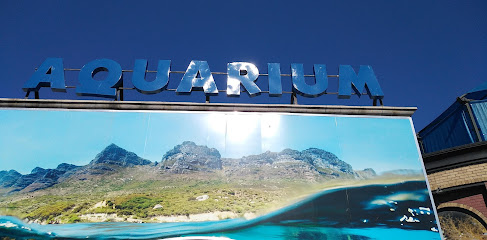
Green Point Park
Experience the beauty of nature at Green Point Park, an urban oasis offering stunning views, diverse gardens, and recreational activities in Cape Town.
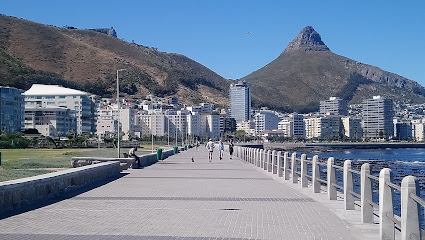
Cape of Good Hope
Experience the breathtaking landscapes and diverse wildlife of the Cape of Good Hope, a nature preserve that showcases South Africa's natural beauty.
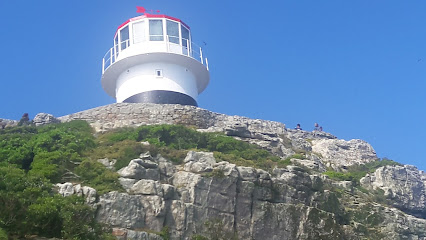
Castle of Good Hope
Explore the Castle of Good Hope, the oldest colonial building in South Africa, showcasing military history and stunning architecture in Cape Town.
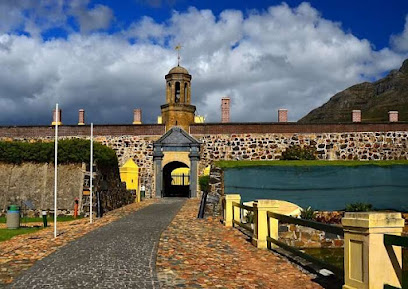
The Company's Garden Restaurant
Discover the serene dining experience at The Company's Garden Restaurant, nestled in Cape Town's historic botanical gardens, blending nature with exquisite flavors.
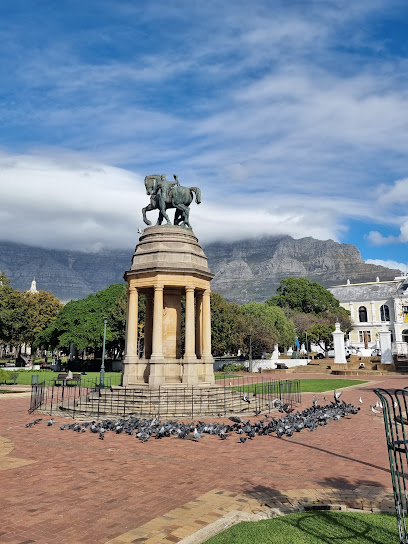
Iziko Bo-Kaap Museum
Explore the cultural richness of Cape Town at the Iziko Bo-Kaap Museum, where heritage, art, and community intertwine.
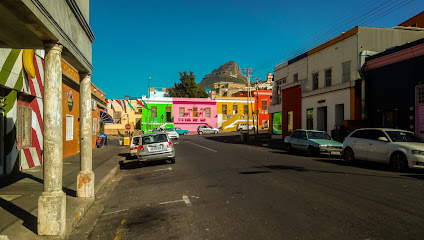
Zeitz Museum of Contemporary Art Africa
Explore the Zeitz Museum of Contemporary Art Africa, where innovative African art meets stunning architecture in Cape Town's V&A Waterfront.
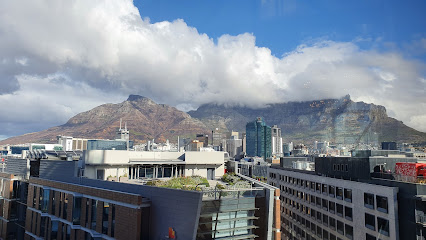
Greenmarket Square
Explore Greenmarket Square in Cape Town: a bustling market filled with local crafts, delicious food, and rich South African culture.
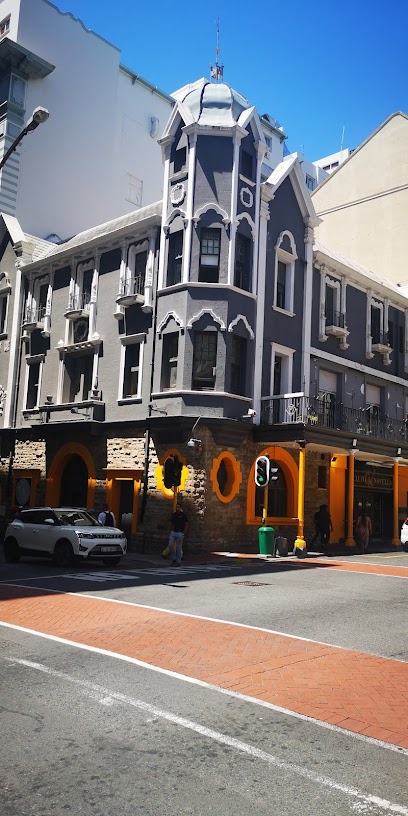
City Sightseeing Cape Town Visitor Center
Discover Cape Town's breathtaking beauty and rich history with guided tours from the City Sightseeing Visitor Center at the vibrant V&A Waterfront.
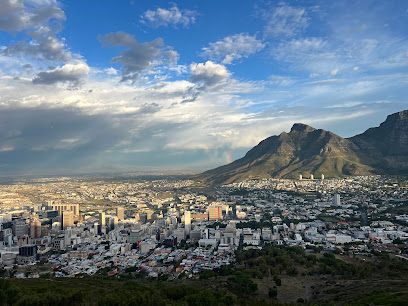
The Nelson Mandela Gateway To Robben Island
Discover the profound history of South Africa at the Nelson Mandela Gateway to Robben Island, where freedom and resilience come alive.
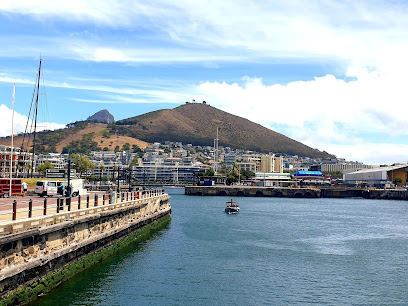
Robben Island Museum
Discover the poignant history of Robben Island Museum, a UNESCO World Heritage site that tells the story of South Africa's fight against apartheid.
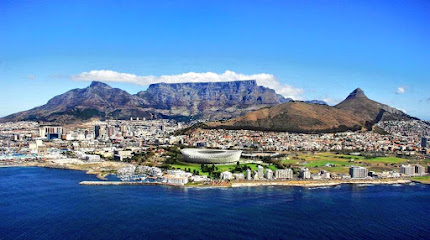
Rhodes Memorial
Discover Rhodes Memorial, where history meets breathtaking views and scenic hikes in the heart of Cape Town.
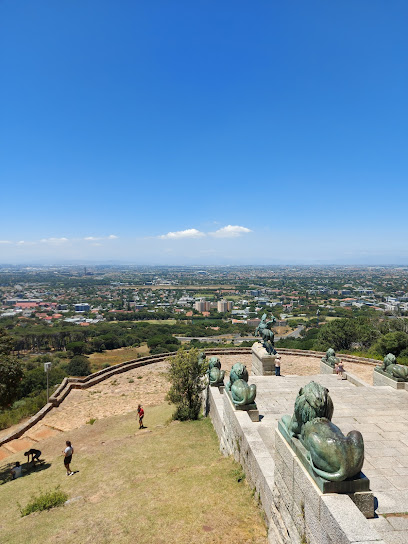
Unmissable attractions to see
Kirstenbosch National Botanical Garden
Explore the stunning Kirstenbosch National Botanical Garden in Cape Town, a botanical delight showcasing the beauty of South Africa's indigenous flora.
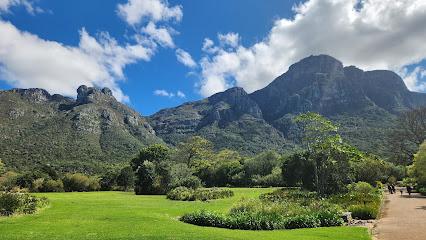
Boulders Beach
Experience the breathtaking beauty of Boulders Beach, home to a charming colony of African penguins and stunning coastal scenery.
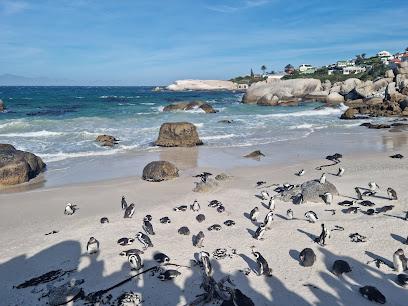
Table Mountain National Park
Explore the stunning vistas and unique biodiversity of Table Mountain National Park, a must-visit destination for every traveler in Cape Town, South Africa.
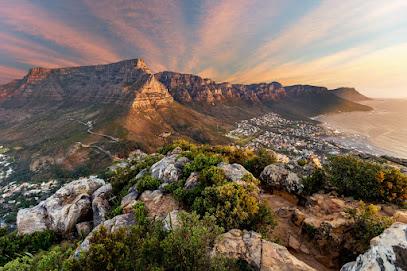
Two Oceans Aquarium
Explore the Two Oceans Aquarium in Cape Town, where the vibrant marine life of the Atlantic and Indian Oceans awaits your discovery.
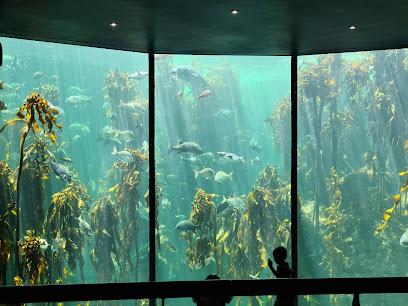
DHL Stadium
Experience the excitement at DHL Stadium, Cape Town's iconic venue for sports and entertainment, showcasing the best of South African culture.
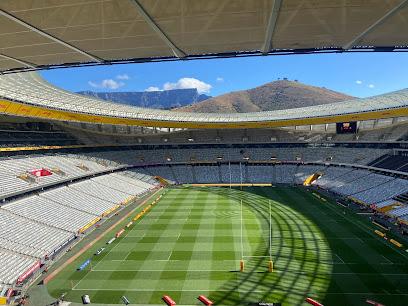
Mojo Market
Discover the heart of Cape Town at Mojo Market – a vibrant fusion of food, music, and culture in Sea Point.
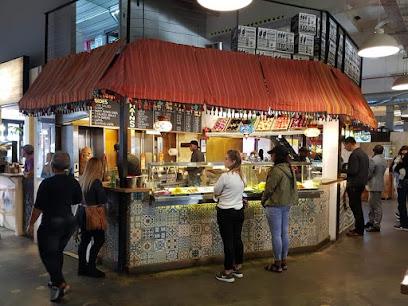
Green Point Park
Explore the natural beauty and vibrant atmosphere of Green Point Park, a top attraction in Cape Town perfect for relaxation and adventure.
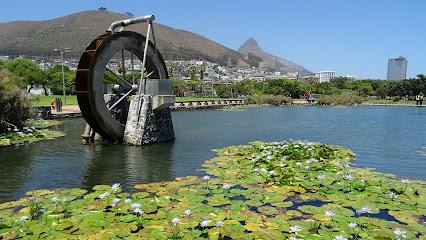
Cape of Good Hope
Experience the breathtaking beauty of the Cape of Good Hope, where nature meets history at the southern tip of Africa.
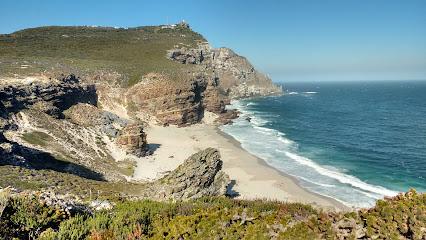
Castle of Good Hope
Explore the Castle of Good Hope in Cape Town, the oldest surviving building in South Africa, a fortress steeped in history and rich in culture.
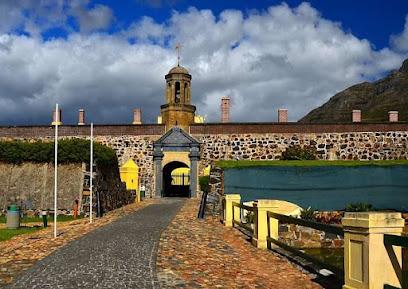
Muizenberg Beach
Experience the vibrant atmosphere of Muizenberg Beach, a perfect destination for sun, surf, and scenic beauty in Cape Town.
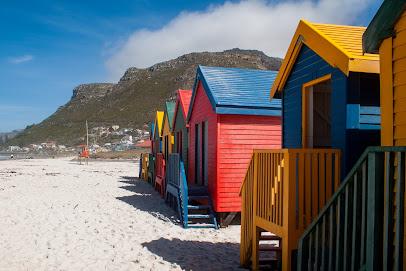
The Cape Wheel
Discover breathtaking views of Cape Town from The Cape Wheel, a stunning Ferris wheel at the vibrant Victoria & Alfred Waterfront, perfect for all tourists.
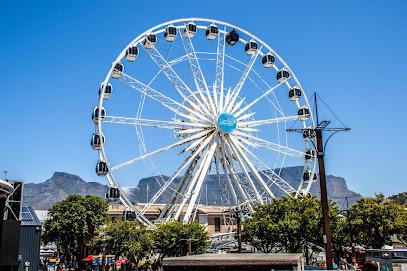
Cape Point Nature Reserve
Experience the stunning landscapes and rich biodiversity of Cape Point Nature Reserve, a UNESCO World Heritage Site in South Africa.
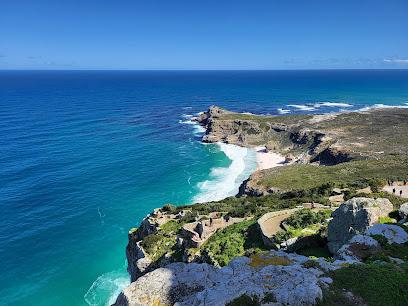
Artscape Theatre Centre
Explore the vibrant performing arts at Artscape Theatre Centre, a cultural gem in Cape Town, offering diverse shows and a unique artistic experience.
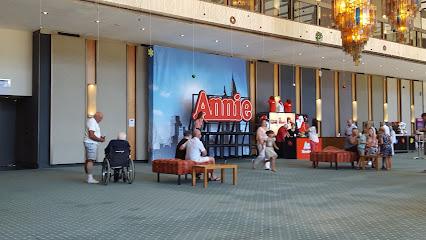
Oranjezicht City Farm Market
Experience the flavors of Cape Town at Oranjezicht City Farm Market – a vibrant hub of local produce, artisanal foods, and community spirit.
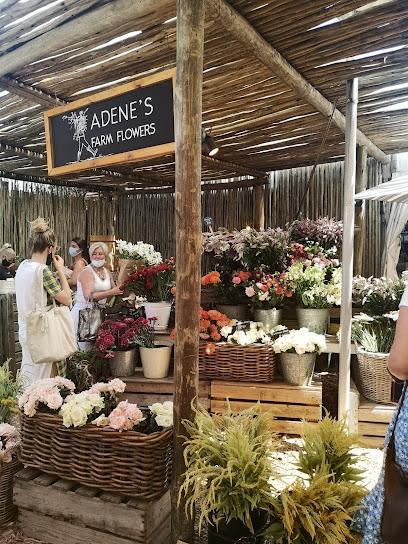
Spice Route Destination
Explore the enchanting Spice Route Destination in Paarl, where artisanal delights meet breathtaking landscapes for an unforgettable experience.
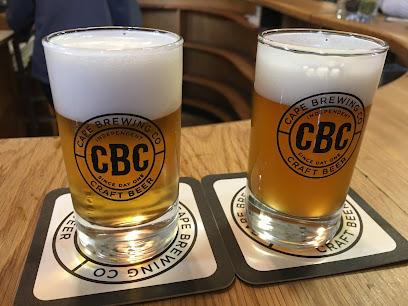
Essential places to dine
Kloof Street House
Discover Kloof Street House: A charming restaurant in Cape Town offering delicious cuisine amidst eclectic decor.
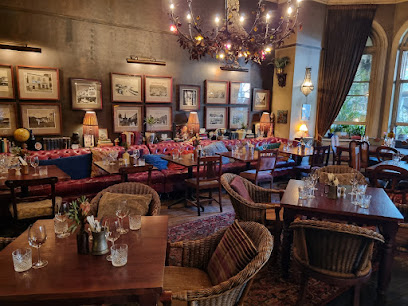
On the Rocks Restaurant
Experience culinary delights at On the Rocks Restaurant in Bloubergstrand - where breathtaking views meet exceptional dining.
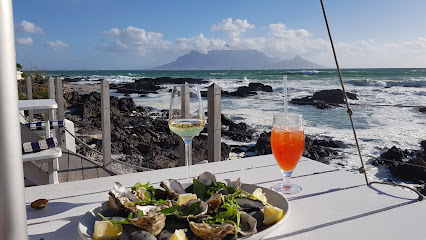
GOLD Restaurant
Discover authentic African flavors and vibrant cultural performances at GOLD Restaurant in Cape Town.
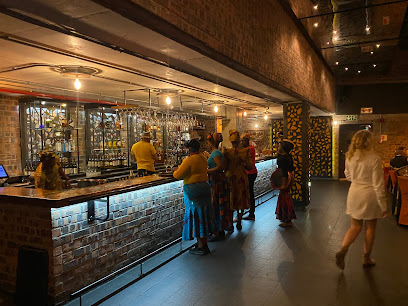
Simon's Restaurant
Discover Simon's Restaurant at Groot Constantia: where exquisite South African cuisine meets stunning vineyard views.
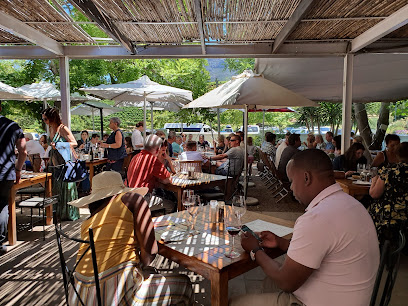
Burger & Lobster
Discover Cape Town's culinary delight with gourmet burgers and fresh lobster at Burger & Lobster - where flavor meets style.
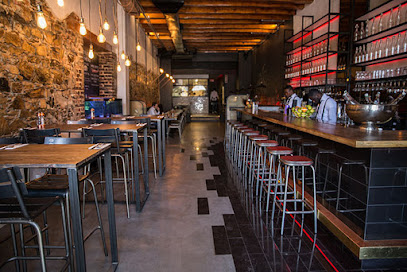
Pigalle Restaurant
Discover the exquisite flavors and lively entertainment at Pigalle Restaurant in Cape Town's Green Point.
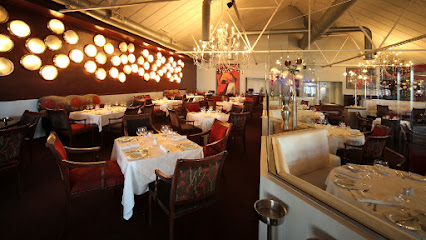
La Colombe Restaurant
Experience culinary artistry at La Colombe in Cape Town – where modern French cuisine meets breathtaking vineyard views.
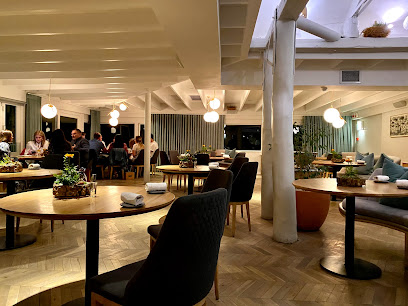
Marco's African Place
Experience the authentic taste of Africa at Marco's African Place in Cape Town - where culture meets culinary delight.
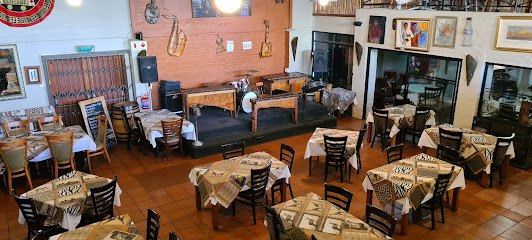
Karibu Restaurant
Experience authentic South African flavors at Karibu Restaurant in Cape Town's vibrant V&A Waterfront – a culinary journey awaits!
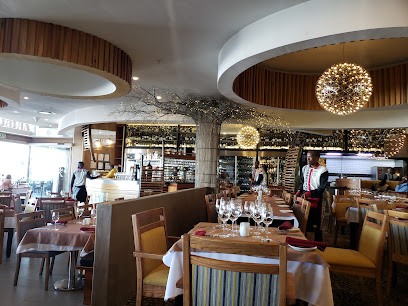
Utopia Cape Town
Experience fine dining at Utopia Cape Town with breathtaking views and a menu that celebrates local flavors in an elegant setting.
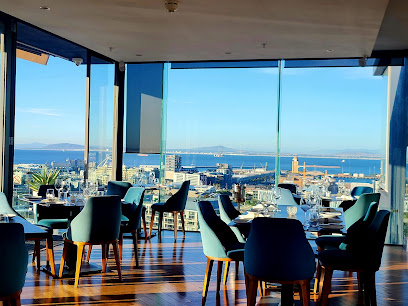
Foxcroft Restaurant
Experience culinary excellence at Foxcroft Restaurant in Constantia - where fresh ingredients meet innovative cooking.
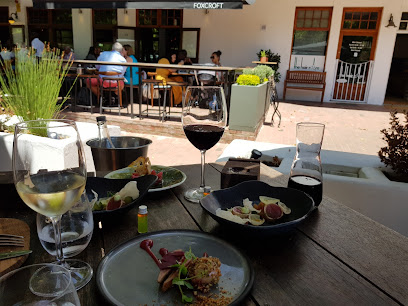
The Dog's Bollocks at YARD
Savor mouthwatering burgers and delicious chicken wings in the heart of Cape Town at The Dog's Bollocks - an unforgettable culinary experience awaits.
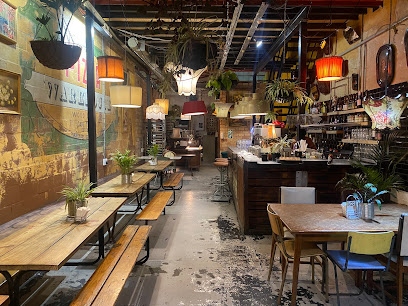
The Pot Luck Club
Discover exquisite tapas and breathtaking views at The Pot Luck Club in Cape Town's Old Biscuit Mill.
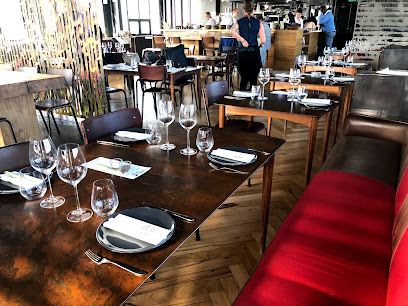
Belly of the beast
Experience innovative South African cuisine at Belly of the Beast in Cape Town - where local flavors meet culinary artistry.
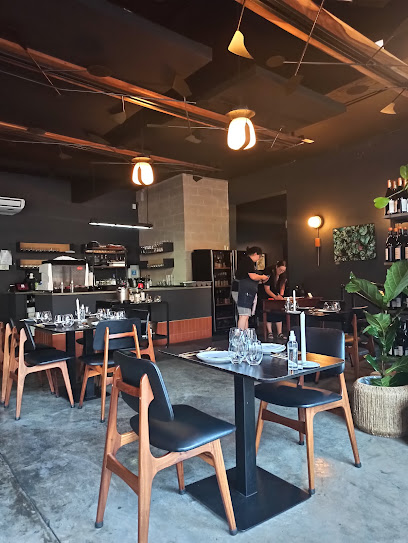
The Cousins Trattoria
Experience the essence of Italy at The Cousins Trattoria in Cape Town - where authentic flavors meet warm hospitality.
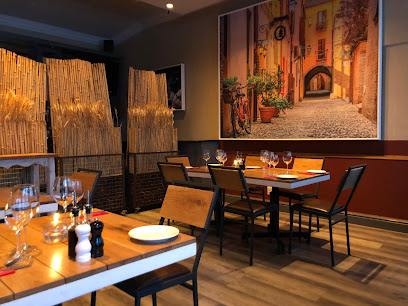
Markets, malls and hidden boutiques
V&A Waterfront
Discover the V&A Waterfront in Cape Town - a shopping, dining, and cultural hotspot with stunning views and endless activities.
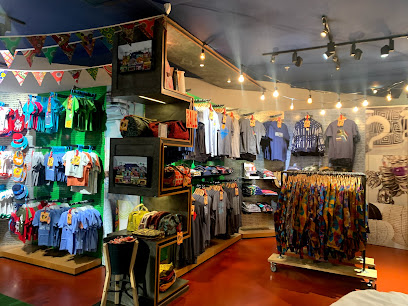
Canal Walk Shopping Centre
Experience the ultimate shopping adventure at Canal Walk Shopping Centre, Cape Town's premier retail and entertainment destination.
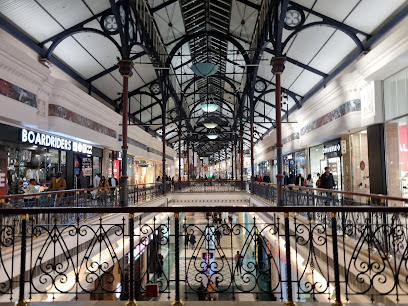
Victoria Wharf Shopping Centre
Explore Victoria Wharf Shopping Centre, the ultimate shopping destination in Cape Town, featuring diverse stores, dining options, and stunning waterfront views.
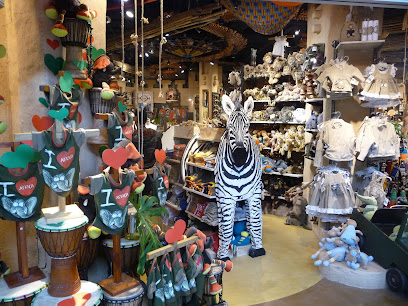
Cavendish Square
Discover Cavendish Square, a vibrant shopping mall in Claremont, Cape Town, featuring a wide array of shops, dining, and entertainment options.
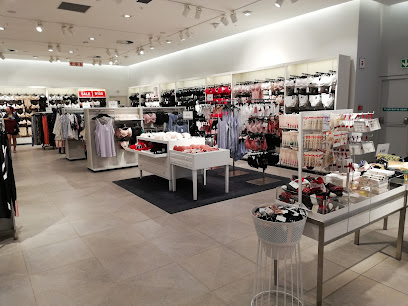
The Watershed
Discover The Watershed at V&A Waterfront, where South African craftsmanship and culinary delights come together in a vibrant artisan market experience.
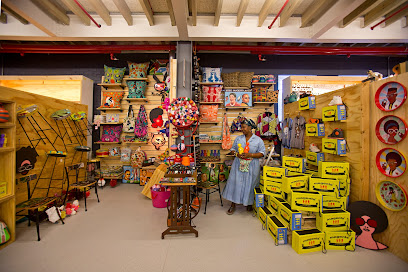
African Trading Port
Explore authentic African treasures at the African Trading Port, where culture meets artistry in the heart of Cape Town's vibrant waterfront.
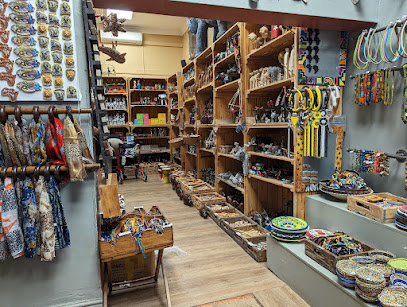
Gift House Curios
Explore Gift House Curios in Cape Town for unique souvenirs and local crafts that celebrate South African culture.
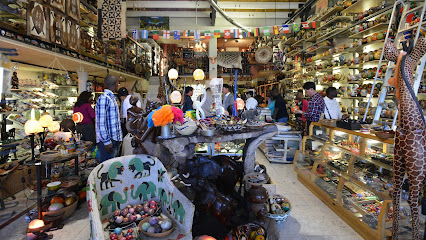
Baraka Gifts and Decor
Discover handcrafted gifts and decor that embody the spirit of South Africa at Baraka Gifts and Decor in Cape Town's vibrant Cape Quarter.
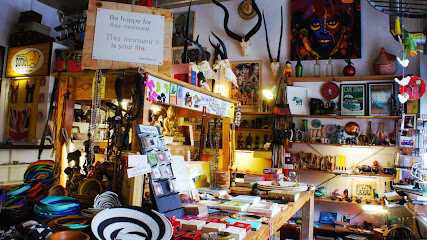
The Long Street Antique Arcade
Explore unique antiques and vintage finds at The Long Street Antique Arcade in Cape Town, a treasure trove for collectors and nostalgia lovers alike.
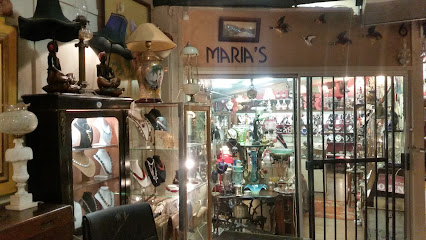
aLoveSupreme Watershed
Discover unique handcrafted gifts at aLoveSupreme Watershed, located in Cape Town's vibrant Victoria & Alfred Waterfront.
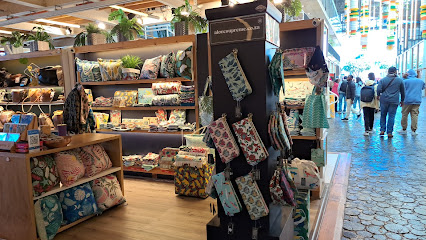
Wicked Things
Discover unique South African fashion at Wicked Things, a premier clothing store in Cape Town's West Beach, offering styles that capture the local spirit.
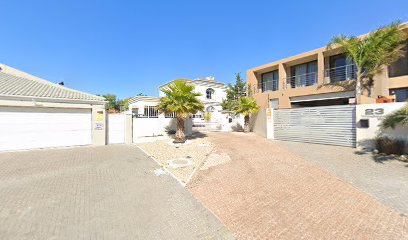
Big Blue
Explore Big Blue in Cape Town for unique gifts and stylish clothing that capture the essence of South African culture and creativity.
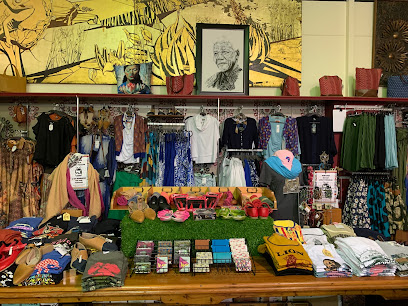
Tribal Trends
Explore the vibrant culture of Africa at Tribal Trends, where unique home goods and handcrafted treasures await in the heart of Cape Town.
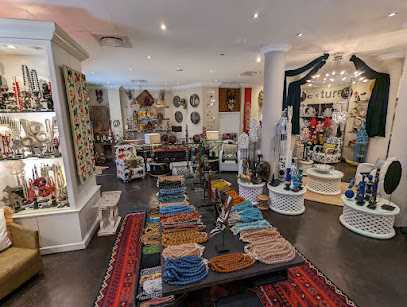
Out of Africa
Discover unique South African souvenirs at Out of Africa, the must-visit store in Cape Town for travelers seeking authentic keepsakes.
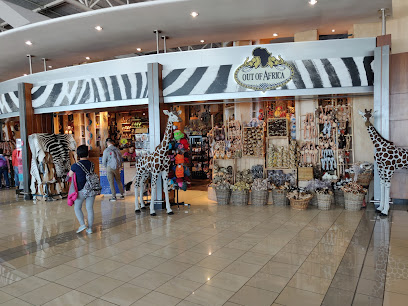
Afraid Of mice
Explore the eclectic world of vintage fashion at Afraid Of Mice in District Six, Cape Town, where every piece tells a unique story.
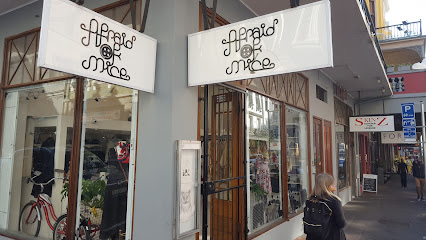
Essential bars & hidden hideouts
Yours Truly
Discover Yours Truly in Cape Town's Schotsche Kloof - a vibrant bar offering a mix of local charm, great drinks, and a lively atmosphere.
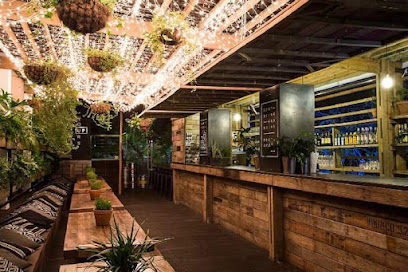
Asoka Restaurant, Bar and Lounge
Experience the best of Cape Town's nightlife at Asoka Restaurant, Bar and Lounge, where delicious cuisine meets vibrant atmosphere.
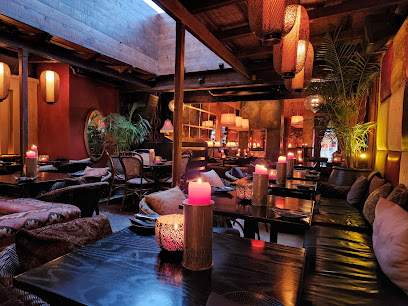
The House of Machines
Discover the heart of Cape Town's nightlife at The House of Machines, where cocktails, coffee, and live music create an unforgettable experience.
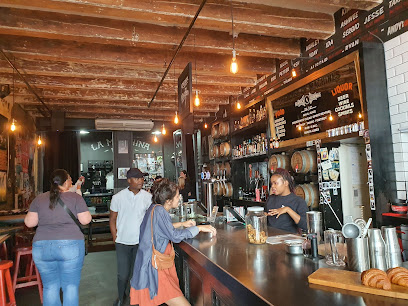
The Gin Bar
Experience the vibrant nightlife of Cape Town at The Gin Bar, where artisanal gins and crafted cocktails meet an inviting atmosphere.
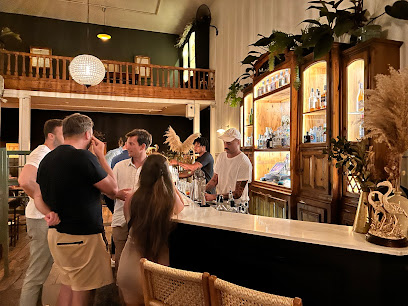
Cause Effect Cocktail Kitchen
Discover the art of mixology at Cause Effect Cocktail Kitchen in Cape Town's vibrant Waterfront, where creativity meets flavor in every glass.
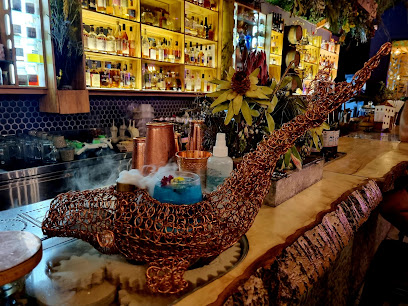
The Power & The Glory
Experience the vibrant ambiance of The Power & The Glory, a unique bar and café in Tamboerskloof, Cape Town, blending local charm with culinary delights.
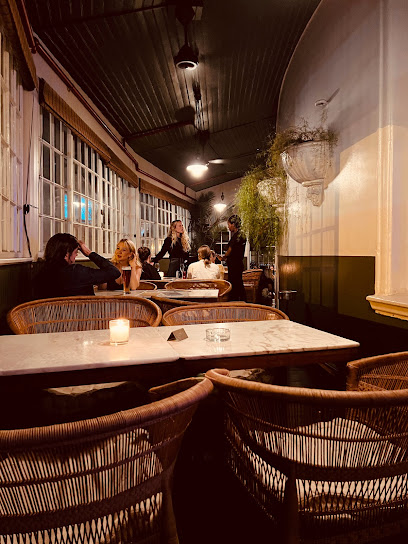
RED Roof bar
Experience the vibrant atmosphere of the RED Roof Bar at Cape Town's V&A Waterfront, where stunning views and delightful drinks await.
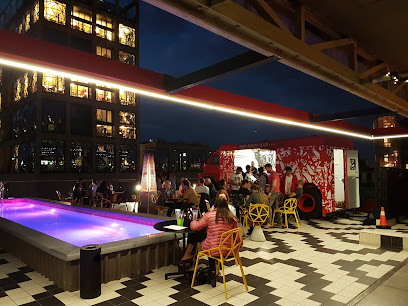
Hank's Olde Irish
Experience the heart of Cape Town's nightlife at Hank's Olde Irish, a vibrant bar with live music and a fantastic drink selection.
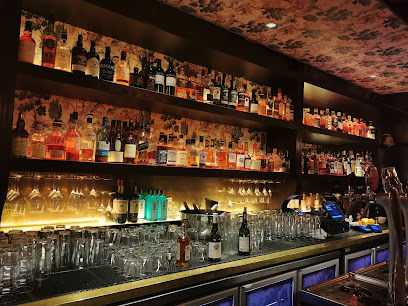
SurfaRosa
Discover the vibrant nightlife at SurfaRosa in Cape Town, where creative cocktails meet lively ambiance in a historic setting.
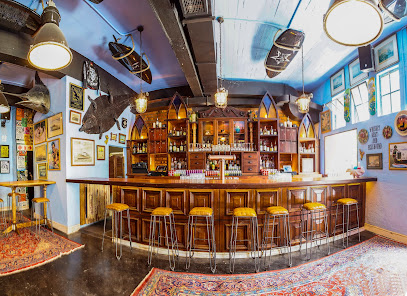
fable
Experience the vibrant mixology and lively atmosphere at Fable, a top cocktail bar in Cape Town City Centre, where every drink tells a story.
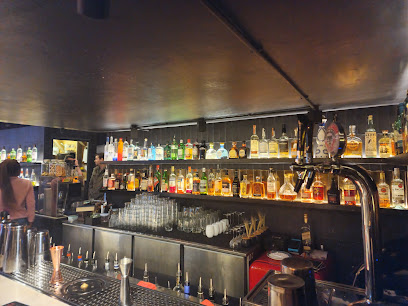
The Dark Horse
Experience Cape Town's vibrant nightlife at The Dark Horse, where great drinks and an inviting atmosphere await you.
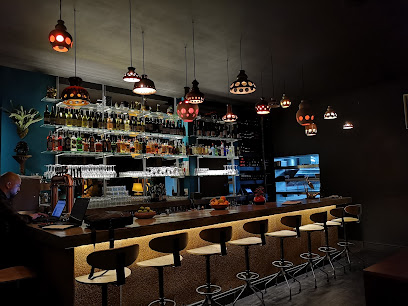
The Jagger Lounge
Experience the vibrant nightlife at The Jagger Lounge, where exquisite cuisine meets electrifying entertainment in Cape Town's CBD.
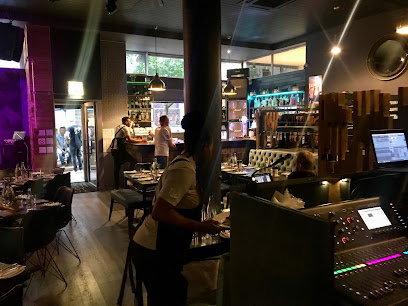
Dust And Dynamite
Experience the Wild West in the heart of Cape Town at Dust And Dynamite, where craft cocktails and live music create an unforgettable night out.
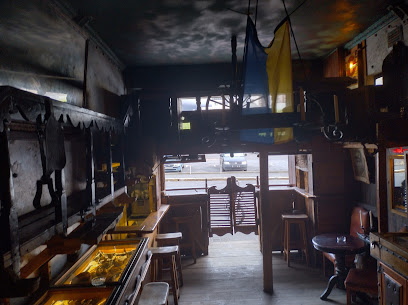
The Drinkery
Experience the excitement of Cape Town's nightlife at The Drinkery, where innovative cocktails and a vibrant atmosphere await every visitor.
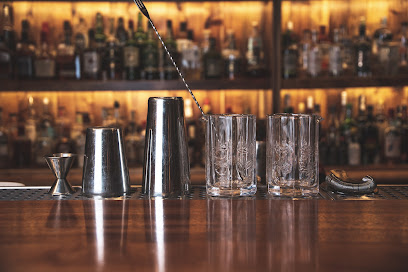
Local Phrases
-
- HelloMolo
[moh-loh] - GoodbyeTotsiens
[toh-tseens] - YesJa
[yah] - NoNee
[nee] - Please/You're welcomeAsseblief
[ah-suh-bleef] - Thank youDankie
[dahn-kee] - Excuse me/SorryVerskoon my
[fehr-skoon may] - How are you?Hoe gaan dit met jou?
[ho gahn deet met yoh] - Fine. And you?Goed. En jy?
[khoot en yay] - Do you speak English?Praat jy Engels?
[praht yay eng-uhls] - I don't understandEk verstaan nie
[ayk fehr-stahn nee]
- HelloMolo
-
- I'd like to see the menu, pleaseEk wil asseblief die spyskaart sien
[ayk vil ah-suh-bleef dee spays-kahrt seen] - I don't eat meatEk eet nie vleis nie
[ayk eet nee flays nee] - Cheers!Gesondheid!
[ghuh-sunt-hayt] - I would like to pay, pleaseEk wil asseblief betaal
[ayk vil ah-suh-bleef buh-tahl]
- I'd like to see the menu, pleaseEk wil asseblief die spyskaart sien
-
- Help!Hulp!
[huhlp] - Go away!Gaan weg!
[kahn vehk] - Call the Police!Bel die Polisie!
[bail dee poh-lee-see] - Call a doctor!Bel 'n dokter!
[bail en dohk-tehr] - I'm lostEk is verlore
[ayk is fehr-loh-ruh] - I'm illEk is siek
[ayk is seek]
- Help!Hulp!
-
- I'd like to buy...Ek wil ... koop
[ayk vil ... kohp] - I'm just lookingEk kyk net
[ayk kuhyk neht] - How much is it?Hoeveel kos dit?
[ho-veel kohs deet] - That's too expensiveDit is te duur
[deet is teh dyoor] - Can you lower the price?Kan jy die prys verlaag?
[kahn yay dee preys fuh-laahg]
- I'd like to buy...Ek wil ... koop
-
- What time is it?Hoe laat is dit?
[ho lah-t deet] - It's one o'clockDit is een uur
[deet is ayn oohr] - Half past (10)Half tien
[hahlf teen] - MorningOggend
[oh-ghund] - AfternoonMiddag
[mid-ahkh] - EveningAand
[ahnt] - YesterdayGister
[ghih-stuhr] - TodayVandag
[fuhn-dahk] - TomorrowMôre
[moh-ruh] - 1Een
[ayn] - 2Twee
[twee] - 3Drie
[dree] - 4Vier
[feer] - 5Vyf
[fayf] - 6Ses
[sehs] - 7Sewe
[seh-weh] - 8Agt
[ahgt] - 9Nege
[neh-ghuh] - 10Tien
[teen]
- What time is it?Hoe laat is dit?
-
- Where's a/the...?Waar is 'n/die...?
[vahr is en/dee] - What's the address?Wat is die adres?
[vah-t is dee ah-drehs] - Can you show me (on the map)?Kan jy my wys (op die kaart)?
[kahn yay may vays (ohp dee kahrt)] - When's the next (bus)?Wanneer is die volgende (bus)?
[vahn-neer is dee fuhl-khend-uh (buhs)] - A ticket (to ....)'n Kaartjie (na ....)
[en kahrt-chee (nah)]
- Where's a/the...?Waar is 'n/die...?
History of Cape Town
-
Cape Town was founded in 1652 by Jan van Riebeeck, a Dutch sailor and colonial administrator, as a supply station for the Dutch East India Company. This marked the beginning of European settlement in South Africa, and the establishment of Cape Town as a crucial point for trade routes to the East.
-
In 1795, the British seized control of Cape Town to prevent it from falling into the hands of the French, who were allied with the Dutch at the time. This marked the beginning of British influence in the region. The British officially took over the Cape Colony in 1806 after the Battle of Blaauwberg.
-
The establishment of the Cape Colony led to the unfortunate institution of slavery, which was a significant part of Cape Town’s early economy. Slaves were brought from other parts of Africa, Madagascar, and the East Indies to work in agriculture and domestic service. Slavery was abolished in the Cape Colony in 1834, following the Slavery Abolition Act passed by the British Parliament.
-
During the 1830s and 1840s, the Great Trek occurred as Dutch-speaking settlers, known as the Voortrekkers, moved inland to escape British rule in Cape Town. This migration significantly influenced the demographic and geopolitical landscape of South Africa, leading to the establishment of several Boer republics.
-
The discovery of diamonds in 1867 and gold in 1886 in other parts of South Africa brought wealth and development to Cape Town. The city became a key port for exporting these valuable resources, and its economy flourished as a result.
-
The apartheid era, beginning in 1948, had a profound impact on Cape Town, as it did on the rest of South Africa. The city was heavily segregated, with non-white residents being forcibly removed from their homes and relocated to townships such as Langa, Gugulethu, and Khayelitsha. This period was marked by widespread human rights abuses and significant resistance movements.
-
Robben Island, located just off the coast of Cape Town, is famous for being the site where Nelson Mandela and other political prisoners were incarcerated for many years during the apartheid era. Today, it is a UNESCO World Heritage Site and a symbol of the struggle for freedom and democracy in South Africa.
-
The end of apartheid in the early 1990s brought significant change to Cape Town. In 1994, Nelson Mandela was elected as the first black President of South Africa, and Cape Town hosted parts of the historic inauguration. The city has since made strides towards reconciliation and development, becoming a vibrant and multicultural metropolis.
-
Today, Cape Town is renowned for its stunning natural beauty, diverse cultural heritage, and historical significance. It is a major tourist destination, attracting visitors with its iconic Table Mountain, picturesque beaches, and rich history. The city continues to evolve, reflecting the dynamic and resilient spirit of its people.
Cape Town Essentials
-
Cape Town is served by Cape Town International Airport (CPT), one of the busiest airports in Africa. Direct flights are available from major cities worldwide, including London, New York, Dubai, and several European and African cities. From the airport, you can reach the city center via taxi, rideshare, or shuttle services. The MyCiTi bus service also offers a convenient and affordable Airport-to-City route.
-
Cape Town offers various transportation options. The MyCiTi bus service is an efficient way to navigate the city, with routes covering major attractions and neighborhoods. Taxis and rideshare services like Uber are widely available. For more scenic travel, consider renting a car to explore the Cape Peninsula and the surrounding wine regions. The Metrorail service connects Cape Town with nearby towns, but caution is advised due to safety concerns.
-
The official currency is the South African Rand (ZAR). Credit and debit cards are accepted in most hotels, restaurants, and shops. ATMs are widely available, but it's advisable to carry some cash for smaller establishments and markets. Currency exchange services are available at the airport, banks, and dedicated exchange bureaus.
-
While Cape Town is generally safe for tourists, some areas have higher crime rates, particularly for petty theft and muggings. Avoid walking alone at night and be cautious in areas like the Central Business District (CBD) after dark, and townships unless guided by a local. Keep your belongings secure and be aware of your surroundings. Stick to well-lit and populated areas.
-
In case of emergency, dial 10111 for police, 10177 for ambulance services, and 112 from any mobile phone. Private hospitals like Netcare and Mediclinic offer excellent medical services. Pharmacies are widely available for minor health issues. It is recommended to have travel insurance that covers medical emergencies.
-
Fashion: Do dress comfortably but avoid overly flashy or revealing clothing. Layering is advisable due to changing weather conditions. Religion: Do respect all religious sites and dress modestly when visiting them. Public Transport: Do use the MyCiTi bus system for safe and reliable transport. Don't use the train system after dark. Greetings: Do greet people with a firm handshake and maintain eye contact. Eating & Drinking: Do try local dishes like biltong, bobotie, and Cape Malay curry. Don't drink tap water; bottled water is recommended.
-
To experience Cape Town like a local, visit the Old Biscuit Mill on Saturdays for local crafts and gourmet food. Take a stroll along the Sea Point Promenade for stunning ocean views. Venture to lesser-known wine estates in the Constantia Valley for a more intimate wine-tasting experience. Don't miss the vibrant street art in Woodstock and the local markets in Hout Bay and Greenmarket Square.
Trending Landmark in Cape Town
-
V&A Waterfront
-
Kirstenbosch National Botanical Garden
-
Table Mountain National Park
-
Two Oceans Aquarium
-
Green Point Park
-
Cape of Good Hope
-
Castle of Good Hope
-
The Company's Garden Restaurant
-
Iziko Bo-Kaap Museum
-
Zeitz Museum of Contemporary Art Africa
-
Greenmarket Square
-
City Sightseeing Cape Town Visitor Center
-
The Nelson Mandela Gateway To Robben Island
-
Robben Island Museum
-
Rhodes Memorial
Nearby Cities to Cape Town
-
Things To Do in Keetmanshoop
-
Things To Do in Kimberley
-
Things To Do in Lüderitz
-
Things To Do in East London
-
Things To Do in Bloemfontein
-
Things To Do in Mafeteng
-
Things To Do in Mohale's Hoek
-
Things To Do in Quthing
-
Things To Do in Maseru
-
Things To Do in Teyateyaneng
-
Things To Do in Mariental
-
Things To Do in Leribe
-
Things To Do in Thaba-Tseka
-
Things To Do in Butha-Buthe
-
Things To Do in Mokhotlong


















